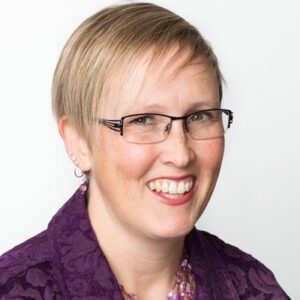
Simply thinking about changing careers can be overwhelming, but what if it felt empowering instead? April McHugh, a seasoned counselor from Adult Career and Special Student Services, emphasizes the positive in the process at Career Change 101 (Thursday, Nov. 3, Verona Public Library, 6:30 p.m.). In addition to highlighting opportunities for growth a career change can provide, she helps prospective career-changers gain focus, social support, and perspective at this free workshop.

According to McHugh, much of the anxiety surrounding career change stems from the need to clarify one’s goals.
“People who are truly ready for a career change tend to know what they want from the experience. This workshop is about taking the first steps toward identifying that,” she says.
Self-assessment activities help participants determine what’s most important to them in work and beyond. After all, successful career change isn’t just about switching jobs. For many people, it’s about finding a work situation that better fits their talents, interests, values, and personality. McHugh asks workshop participants to consider how they’d spend their time if offered a one-year paid sabbatical from their current job.
“The sabbatical activity gets at what is truly meaningful to people and what gets them excited,” she explains. “The next question is how to make these things a bigger part of their career.”
A gift to yourself
After teasing out some of their goals, participants receive reliable resources to meet their needs. Options range from career information websites to informational interviews with professionals in fields of interest. If more assistance is needed, personalized career counseling sessions are also available.
McHugh emphasizes that career-change resources vary from do-it-yourself activities to experienced professionals who want to help. Regardless of the method chosen, she encourages participants to cultivate strong support networks as they map out their career plans.
“A lot of times, people are thinking about career change in a vacuum, by themselves. It can feel scary and overwhelming because there are so many factors to consider and decisions to make. It’s important to have a team of people who’ll support you in achieving your goals,” she says.
Participants have noted that the workshop’s small-group activities helped them feel more confident and connected as they considered changing careers. As one attendee put it: “Seeing and hearing others share the same challenges was my favorite part.”
McHugh adds that the workshop is valuable on many levels, and is a chance for career-changers to spend two hours focusing solely on themselves.
“I encourage people to think of Career Change 101 as a gift to themselves. It’s a chance for people to make a positive change in their lives, and many of them leave feeling inspired.”
Adult Career and Special Student Services provides career and educational counseling through the University of Wisconsin–Madison Division of Continuing Studies. For more information, call 608-263-6960 or email advising@dcs.wisc.edu.
McHugh offers Career Change 101 several times a year. To register for the Nov. 3 workshop, see here.